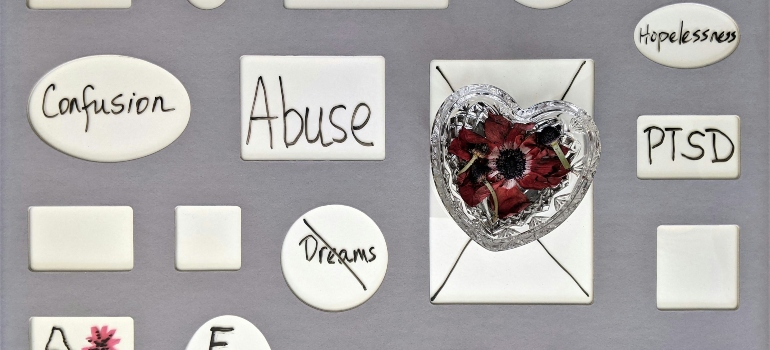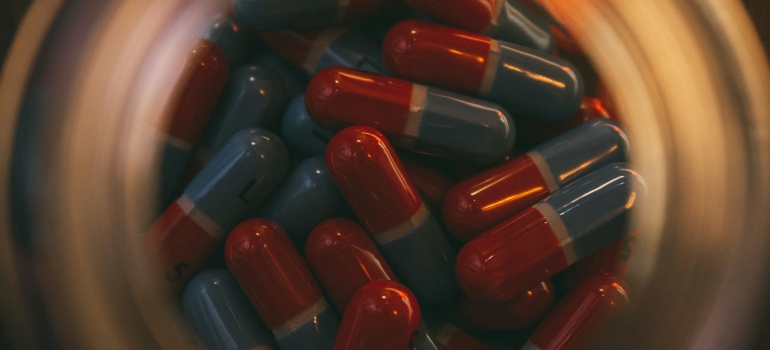A drug overdose happens when a person consumes a substance in quantities that overwhelm the body’s ability to metabolize or excrete it. When an overdose occurs, it can even lead to toxic effects. They can be either accidental, such as taking too much medication, or intentional, as in cases of self-harm or suicide attempts. The severity of an overdose depends on multiple factors. Those factors include the type of drug, the amount consumed, and the individual’s overall health. Both legal and illegal substances can cause overdoses, with opioids, sedatives, stimulants, and alcohol as the most commonly involved. Understanding what happens to your body after a drug overdose is essential for identifying the severity of the situation and seeking immediate help. If you or someone you know is struggling with substance abuse, rehabs in WV offer all-encompassing treatment programs that can help prevent such life-threatening incidents and support recovery.
What Happens to Your Body After a Drug Overdose Explained through Immediate Physical Effects of Drug Overdose
Respiratory depression is one of the most dangerous immediate effects of a drug overdose. That usually happens with opioids or sedatives. These substances slow down the central nervous system (CNS), which in turn reduces the drive to breathe. Furthermore, when breathing slows or stops, the body’s organs, especially the brain, receive less oxygen, leading to hypoxia. Hypoxia can cause irreversible brain damage or even death within minutes. Symptoms of respiratory depression include shallow breathing, blue-tinged skin (cyanosis), and, in severe cases, complete respiratory failure. For young individuals facing substance abuse, seeking help from drug rehab for young adults is critical. Such institutions have the necessary equipment to deal with these diseases. They provide age-appropriate treatment and support, potentially preventing the fatal consequences of an overdose. Early intervention and proper treatment can make a huge difference between life and death.

What Happens to Your Body After a Drug Overdose Explained through Cardiac and Central Nervous System Complications
Certain drugs, including stimulants like cocaine and methamphetamine, can cause serious cardiac complications during an overdose. These drugs stimulate the heart, leading to increased heart rate and blood pressure. Furthermore, blood pressure and fast heart rate can result in irregular heartbeats (arrhythmias), heart attacks, or cardiac arrest. Conversely, opioids and sedatives can depress heart function, leading to bradycardia (slow heart rate) or hypotension (low blood pressure), both of which are life-threatening if you do not treat them immediately. Seeking help from a drug rehab can be essential in tackling these issues before they become fatal. Depressants, such as benzodiazepines and barbiturates, can cause significant central nervous system (CNS) suppression during an overdose. This suppression may lead to loss of consciousness, coma, or seizures. When the brain’s activity is severely damaged, the body’s ability to regulate vital functions like breathing, heart rate, and body temperature is compromised.
Impact on Vital Organs
The liver plays a key role in metabolizing drugs and detoxifying the body. Still, certain substances, such as acetaminophen (found in many over-the-counter painkillers) and alcohol, can cause acute liver failure. During an overdose, the liver’s capacity to process these toxins is beyond full, leading to hepatotoxicity. Implementing holistic therapy for addiction can be useful in supporting liver health and overall recovery. Symptoms of liver damage include jaundice (yellowing of the skin and eyes), abdominal pain, and confusion. If not treated adequately, liver failure can be life-threatening and may require a liver transplant.
Kidney Damage
An overdose can also lead to acute kidney injury (AKI), particularly when dehydration, muscle breakdown (rhabdomyolysis), or toxic substances happen. Rhabdomyolysis occurs when muscle tissue breaks down, releasing myoglobin—a protein harmful to the kidneys—into the bloodstream. The kidneys’ main function is to filter waste from the blood, but an overdose can severely damage this function, leading to renal failure. Opioids and kidney failure are closely linked, as opioid overdoses can reduce blood flow to the kidneys, exacerbating the risk of AKI. Symptoms of kidney damage include reduced urine output, swelling in the legs or ankles, and confusion.

Neurological Consequences
A drug overdose can have severe neurological consequences, including:
- Seizures and coma: Certain drugs, usually stimulants like cocaine or depressants like barbiturates, can trigger seizures during an overdose. Seizures come from abnormal electrical activity in the brain. Also, they can cause loss of consciousness, muscle rigidity, and convulsions. If the overdose is severe, the individual may slip into a coma.
- Memory loss: A severe drug overdose can lead to significant memory loss and cognitive decline. That happens especially if the brain is deprived of oxygen during the incident. Individuals may experience difficulties with short-term memory, learning new information, and focusing.
- Cognitive decline: In some cases, these cognitive deficits may be permanent, requiring long-term rehabilitation and support. If you or a loved one is struggling, it’s important to seek rehab for yourself to prevent these life-altering effects.
It is very important to react promptly to avoid permanent neurological consequences.
Psychological and Emotional Impact
When you survive a drug overdose, it will leave you with profound psychological and emotional consequences. For instance, it can leave you with the development of Post-Traumatic Stress Disorder (PTSD). People with PTSD may experience flashbacks, nightmares, and severe anxiety related to the overdose. In addition, they will often find themselves reliving the traumatic event. The fear of the trauma happening again can be overwhelming, making it hard to concentrate on recovery.
This anxiety may also hinder engaging in essential recovery activities, such as therapy and counseling. Incorporating family therapy for addiction into the recovery process can be especially beneficial, as it helps to address not only the individual’s trauma but also the impact on loved ones. Family therapy provides a supportive environment for processing these emotions and developing healthy coping strategies together. Eventually, with the right support and treatment, individuals can work through their PTSD.

Depression and Anxiety
The aftermath of an overdose often brings extreme feelings of depression and anxiety. These emotions can appear because of the previous overdose. Moreover, overdose has a great impact on one’s health, and it damages relationships. Depression and anxiety often complicate the recovery process, making it challenging for people to stay sober and fully engage in treatment. Mental health support becomes essential in navigating these emotions and staying on the path to recovery. In addition to depression and anxiety, many who survive an overdose experience profound guilt and shame, especially if the overdose was witnessed by loved ones or is linked to ongoing addiction struggles. This guilt and shame can lead to self-isolation, self-loathing, and reluctance to seek help. Tackling these feelings through individual therapy for addiction and support groups is crucial for emotional healing and effective recovery.
What Happens to Your Body After a Drug Overdose Explained via Long-Term Health Implications
An overdose can lead to the development of chronic health conditions. Furthermore, those health conditions necessitate ongoing medical treatment. For example, liver cirrhosis, kidney disease, or chronic respiratory issues often come from the acute damage sustained during the overdose. These conditions have a great impact on an individual’s quality of life. Also, chronic medical conditions require regular medical appointments, continuous medication, and substantial lifestyle adjustments. Navigating such chronic conditions is a lifelong commitment that poses both physical and emotional challenges. In addition, people who experience an overdose may face a dual diagnosis, where both substance use disorders and mental health conditions like depression or anxiety are present. This dual diagnosis complicates treatment and recovery, as it needs treating both conditions simultaneously for effective management. Comprehensive care plans that integrate treatment for chronic health issues and dual diagnoses are of key importance for improving long-term outcomes and supporting overall well-being.

Reduced Life Expectancy
Repeated overdoses or the serious consequences of a single overdose can greatly reduce overall life expectancy. This reduction comes from lasting organ damage, such as chronic liver or kidney disease, which compromises the body’s ability to function normally. In addition, an overdose often leads to increased vulnerability and a severely damaged immune system to future health problems and complications. The ongoing use of substances can cause these issues, further diminishing health and longevity. People with a history of overdose are also at a higher risk for premature death due to related health complications, such as infections or cardiovascular issues. All these potential complications are making early intervention and comprehensive treatment crucial. Tackling both the immediate and long-term health consequences through effective rehab processes and medical care can help lessen these risks and support a longer, healthier life.
What Happens to Your Body After a Drug Overdose in a Sense of Social and Economic Consequences
An overdose can have deep social and economic consequences. For example, overdoses often damage relationships with family, friends, and coworkers. The emotional and psychological toll can lead to social isolation. That happens because people tend to withdraw from their support networks or require long-term caregiving due to health complications. In addition, there are financial implications of an overdose. Emergency medical care, hospitalization, and rehabilitation costs can quickly become overwhelming for anyone. Also, the aftermath of an overdose may result in lost income due to disability or ongoing health issues, creating considerable economic issues. This financial burden and the potential need for extensive medical treatments and long-term care can lead to great financial instability. Addressing these challenges requires not only effective medical treatment but also support systems to help manage the social and economic impacts of an overdose.

Recovery and Rehabilitation
Recovering from an overdose demands all kinds of approaches to rehabilitation and support. Comprehensive medical rehabilitation is critical, including physical therapy, occupational therapy, and ongoing medical monitoring to tackle the physical damage and support recovery. Addressing the root cause of the overdose through addiction treatment is also very important. This includes counseling, therapy, and engaging in support groups to tackle substance abuse and promote long-term sobriety. Psychological support is equally important, as individuals may need therapy to manage PTSD, depression, and anxiety that came from the overdose. Effective rehab treatment helps people dealing with the emotional aftermath and supports their overall mental well-being. Understanding what happens to your body after a drug overdose can give you insight into the need for these comprehensive treatment approaches. Combining medical, psychological, and addiction-focused therapies ensures a holistic recovery process, addressing both physical and emotional needs to improve the chances of sustained recovery.

Prevention and Harm Reduction
Understanding how to prevent and respond to drug overdoses is essential for minimizing their great consequences. It’s important to be aware of the signs of an overdose, such as extreme drowsiness or slowed breathing to take timely action. Also, in the event of an overdose, promptly you should call emergency services. In addition, administering naloxone (if applicable), and performing CPR can save lives. Moreover, implementing harm reduction strategies, such as using substances in safer environments, avoiding mixing drugs, and keeping naloxone readily available, can significantly lower the risk of overdose. By understanding what happens to your body after a drug overdose, people can better appreciate the critical nature of these preventive measures. Recognizing the symptoms, acting swiftly in emergencies, and employing harm reduction techniques are essential steps in protecting oneself and others from the devastating impacts of overdoses.
Resource:
https://aspe.hhs.gov/reports/non-fatal-opioid-overdose-associated-health-outcomes-final-summary-report-0



